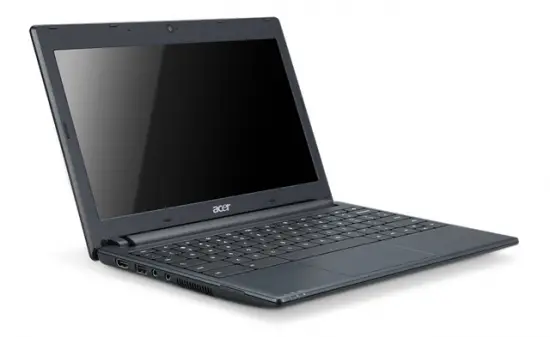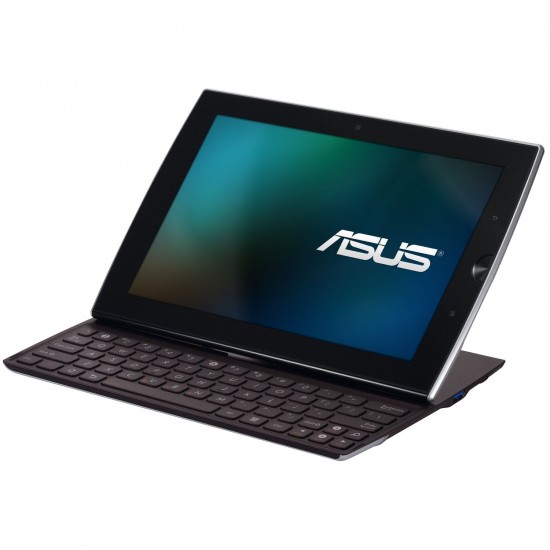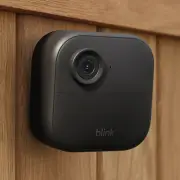This is an interesting one, folks. DigiTimes has scooped up word about a handful of manufacturers – namely ASUS, Samsung, Toshiba and Acer – ordering parts to create ARM-based netbooks. The netbooks would run Android instead of Chrome, though, which would effectively have Google competing with themselves in that space.
Google’s banking on Chrome for the future in mobile computing as they look to stress that everything can be done using nothing but the cloud. Unfortunately, many manufacturers don’t yet see the need or the use of a browser-based operating system and have elected not to pursue those avenues. The only known players in that space are Acer and Samsung, with both already offering Chromebooks of their own.
With Android, manufacturers get an established operating system that many developers are behind. A robust application market is already in place and enough apps exist for some users to be able to completely replace their traditional computing platforms. NVIDIA’s Tegra line is looking to be a popular choice going forward with these manufacturers as they provide cost-efficient chipsets that provide great performance.
ASUS has already tested the waters in this area, having released the Eee Pad Transformer tablet that can be attached to an optional keyboard dock. Once attached, it can fold shut like a netbook. Sometime this summer, ASUS will also be launching the Eee Pad Slider, a concept similar to the Transformer except the keyboard is permanently attached and can be exposed by sliding the tablet’s display up. DigiTimes says ASUS is already looking to launch a more traditional 13-inch netbook based on Android.
It’s an interesting dynamic in the netbook space where Windows and, in some cases, Ubuntu already dominate. Manufacturers have already tried to compete in this space before using Android, but ultimately failed to gain traction as Android didn’t easily translate to netbooks. With Honeycomb, all of that has completely changed.
As for Google, it will be interesting to see how they play it if Android on netbooks takes off. They’ve poured a ton of resources into Chrome and we don’t expect them to shy away from it too soon, but a surge in Android-based netbook products may affect the future of their desktop computing goals. [DigiTimes]












Smart move for now…chrome books may be the future, but I dont think consumers are there yet.
However lots of people do seem to be buying Chromebooks – probably businesses – since it isn’t really being advertised or pitched to consumers at the moment.
looking forward to the slider, but 10 inches is too big for a tablet with no stylus, and it’ll inevitably be stupidly expensive as always
How about Android Netbooks for the consumer sector and Chromebooks for Enterprise?
Yeah, I think that’s how it will happen in the end. Consumers will only buy a Chrome if it’s something like $200 and with huge battery life (ARM based), and it would need to be a lot more mature by then, too, like having HTML5 offline support for a lot of web apps.
But I can really see it taking off in enterprise where they are moving to cloud. It would save them a lot of money not only upfront but also with IT maintenance and so on, software prices, and so on.
just make chrome OS some sort of layer that can run on top of android, and everyone is happy :p
That’s brilliant! Have Chrome run as a layer over the OS!. We’ll call it a web browser. :-P
As much as I love android, honeycomb still needs work before it can be a netbook type of experience for me. I need some real word processing apps, more space to store things. Since this has nothing really to do with iPhone I’ll say this. I think somehow android could move towards a simple OS, almost like OS X. I have still hear arguments that ppl don’t use macs bc they are to difficult. That is non sense, since buying my MacBook pro, I’ve discovered it’s pretty much the simplest environment you can work in. I’ve never used chrome, but hear great things about it.
Obviously it won’t be hard for you, judging by you checking tech news but fore the average person that is used to windows it will be a change for them. Lets face people like what their use to, they don’t like change, and don’t like adapting to a different os
Nothing you need is restricted by Android. Most of it is already there in the form of Google Docs. If you need something a little heavier I’m sure the developers will port the open source packages over when enough people are using laptop/desktop android devices.
So perhaps Android isn’t ready for you quite yet, we need to support it ourselves if we want dev’s to support it.
Yeah, as chips like Tegra 3 and next year Tegra 4 start showing in these devices, there will be more processing apps and more advanced apps like that, too. Perhaps we’ll even see the full Photoshop on it sometime in the next couple of years.
What I find amusing is that Android based Tegra 3 machines are coming this year, while Tegra 3 won’t arrive in Windows 8 machines until 2012 fall. By then we’ll already see Tegra 4 Android machines. I love it how because of Microsoft’s restrictions for WP7 an Windows 8, the manufacturers can only use one generation old chips.
I would take an Android notebook over a chrome book any day. Android is by far superior to Chrome. It’s my only real gripe with Google is that they will not just write Chrome for Android. As is, I have a strong feeling the only reason they will not port Chrome to Android is because they would be making Chrome OS obsolete by doing so.
They would not be making Chrome OS obsolete. Chrome OS has many different features that make it more than just a browser. Being able to handle multiple users is the biggest difference.
they could always make dual-boot devices. i’m not saying manufacturers should have to support 2 operating systems but it should be an end-user option. also if you could run chrome browser on android (already in google tv) that should cover all your needs or at least let you transition from apps to their html5 equivalents as they become available.
I like that idea.
No Google, not everything can be done in the cloud, nor should it be.
UUmmmm no. Android can’t render the web correctly. Yeah that’s what I want – a laptop that displays the web in mobile format.
Even my Xoom defaults to mobile web pages. I’m sorry – Android sucks for browsing the web. I’ll take Chrome any day.
Fake your user agent.
how to fake in honeycomb?
Convertible devices is a place I’ve long thought that Android could cream iOS. Honeycomb is a more desktop-like experience than iOS already, but, beyond that, Apple is going to be hesitant to make iOS convertible to a usable laptop/desktop because it would cannibalize Mac sales. I would not be surprised to see Android have a multi-year head start on iOS for convertible slates, phones with netbook/desktop docking stations, etc. And I also wouldn’t be surprised if this becomes the answer to “What the heck are tablets useful for?” If you could use them as desktops too they’re suddenly more than just fun toys with just a few niche useful applications.
And I don’t really think Chromebooks will take off in the foreseeable future. I understand doing less is a selling point in some situations, but why not just buy a device that runs Android/Windows/Mac and use a browser? Maybe some day bandwidth will become so ubiquitous and cheap that it will seem pointless running a full OS with lots of locally installed apps and locally stored data, and security headaches, but that is a long way off.
Security headaches, as you mention. Windows, Android and Mac are all vulnerable to virus, whereas Chrome OS should tackle this issue.
The nice thing about “competing” with yourself is that either way, you win.
Given that Android does everything Chrome OS does, and a lot of stuff that Chrome OS just plain isn’t designed to do, AND has all of the cloud-based storage features of Chrome OS, makes me suspect that Android is going to win this particular fight. The main issue with Android as a Chrome OS-type thing is more to do with web developers who assume that Android == phone, but it’s easy enough for the Android browser to provide a different user agent too.
Zero maintenance is the key feature (and indeed the whole point) of Chromebooks. Chromebooks are also stateless and so offers complete user independence from the physical device. Android has lower maintenance requirements than Chromebooks, but is not zero maintenance, and neither does it offer physical device independence.
Android is better for ultra mobility, whereas Chromebooks are better for desktop or luggable devices, particularly when shared between users. They are basically two different devices for two different types of useage. I think the two will merge at some point in the near future to give a Chromebook which can run Android apps rather than the other way around.
It’s a bit fallacious to say that they are stateless and zero-maintenance. They do maintain things locally such as account credentials (i.e. cookies), cached copies of documents (using HTML5 local storage), and so on, and they still need to be configured for your various users’ accounts and local WiFi networks and so on. Also, a lot of web-based apps actually do just keep application data only on the individual computer (Angry Birds is a good example of that).
Android devices are also edging progressively closer to that, with cloud-based storage of application preferences and so on. Android devices are intended to be one per user, and I haven’t seen how ChromeBooks handle multiple-user situations and they probably do work better for that use case.
Anyway, my point is just that it’s a bit silly to think of Android and Chrome being in competition when they’re both just different parts of the Google device empire, and even if both do live on in perpetuity (which certainly is possible, although I personally see it as unlikely), either way, Google wins.
The problem with Chromebooks is that they should’ve been like this from the very beginning, having Tegra 3 and costing $250-$300 at most. Google screwed up the launch the same way they did with Google TV – by using an expensive Intel Atom chip that added at least $100-$150 to the price.
Google should’ve waited a few months months until the Tegra 3 Chromebooks were ready. Besides it’s not like Chrome OS was fully ready either. They didn’t even have their own services with offline support at launch, and said they will be coming this summer. They should’ve just waited.
Yes, maybe. But Google has not only launched a 350$ laptop, but also some packages for Business and Education. I guess it was important not to wait to much.
Google is quick to point out that users may not be ready for the idea of chrome-books but they seem to overlook that the Internet, Google included, isn’t ready for it either.
Chromebooks basically rely on SaaS as a robust concept to function. Everything can be done with a web app therefore the only thing a PC should do is load the web properly. It’s nice in theory but even as more apps do begin to “pop up” as web apps they still share a massive limitation: none of these SaaS solutions integrate with each other. They are all islands unto themselves making working in a pure “cloud” frustratingly limiting long before any theoretical bandwidth issues arise.
We don’t even need to look any farther than Google’s own suite of apps for proof.
Want to import a picture from your picasa web albums to your current google doc? Nope. Gotta jump through hoops of downloading/re-uploading etc. The two don’t talk to each other.
Want to use Google Cloud Print to print your Google Doc directly? Or said Picas picture? Nope. Can’t do that either. Again: I have to download the item in question so I can launch my cloud print app …. or possibly send an email to it … but there’s no print function.
So I can’t easily access my media when making documents … I can’t easily print anything … and I’m still inside the Google bubble …. what’s going to happen when I hop onto Intuit’s website to do some taxes? Yup … more local downloading and manipulating so I can put it up to a different cloud system, be it importing some data, or printing some tax returns.
There is TONS of extra work that needs to be done to live only i an cloud and not have local proceeding at your disposal. “Thin clients brought to you in part by HTML5” is nice in eutopian theory … terrible in reality.
I predict these tanking hard.
Isn’t it already possible to insert an image from a Picasa Web Album directly into a Google Document (Insert > Image > From Picasa Web Albums).
You still can access your media through the good old-fashion way from your USB key or external hard drive. If you’re media is online, indeed, you need to download it, but it is already the case with Windows.
I’m pretty sure that Google Print will be integrated in all Google Apps soon, like it is already the case in Gmail.
Look at how webapps were 5 years ago and imagine how they can be in the next 2 years. The Chrome OS initiative aims to push the web forward.
Chrome feels like its for pioneering
Amdroid is for what we want now
I love my chromebook….
Chrome OS would be pointless, unless I can use Visual Studios in the cloud. Isn’t that what MS Office 2010 is? A cloud server? If it is, then I might start looking into getting a tablet, and leave my laptop for my few PC games.
I don’t want to believe in Android laptops.
My feeling is that Android is growing and progressively becoming kind of the new Windows. Aren’t we going to face the same issues: virus, heavy applications…?
On the other side, with Chrome OS, Google has started from scratch, focusing on security and speed. Web apps working off-line will come. Touch-based interface may come also.
Come on Asus! You’ve announced X101 with MeeGo at 200$. Please build an equivalent ARM Chromebook!